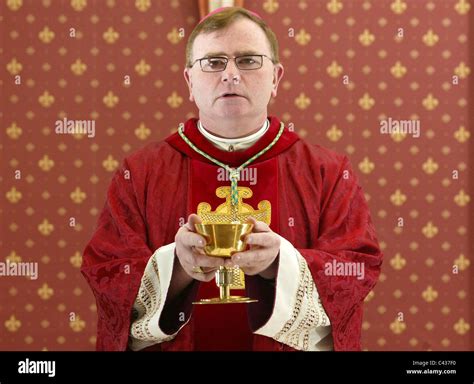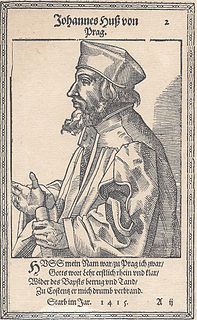A Quote by C. S. Lewis
If you are a Christian, you are free to think that all these religions, even the queerest ones, contain at least some hint of the truth.
Related Quotes
RELIGION is one's opinion and belief in some ethical truth. To be a Christian is to have the religion of Christ, and so to be a believer of Mohammed is to be a Mohammedan but there are so many religions that every man seems to be a religion unto himself. No two persons think alike, even if they outwardly profess the same faith, so we have as many religions in Christianity as we have believers.
We all have the same God, we just serve him differently. Rivers, lakes, ponds, streams, oceans all have different names, but they all contain water. So do religions have different names, and they all contain truth, expressed in different ways forms and times. It doesn't matter whether you're a Muslim, a Christian, or a Jew. When you believe in God, you should believe that all people are part of one family. If you love God, you can't love only some of his children.
A Christian boy or girl can learn mathematics, for example, from a teacher who is not a Christian; and truth is truth however learned. But while truth is truth however learned, the bearing of truth, the meaning of truth, the purpose of truth, even in the sphere of mathematics, seem entirely different to the Christian from that which they seem to the non-Christian; and that is why a truly Christian education is possible only when Christian conviction underlies not a part but all, of the curriculum of the school.
All religions have some truth in them, but none has the whole truth; all are created in time and finally decline and perish. Mahomed himself never pretended that the Koran was the last message of God and there would be no other. God and Truth outlast these religions and manifest themselves anew in whatever way or form the Divine Wisdom chooses.
I told him the truth, that I loved him and didn't regret anything about our lives together. But do we ever 'tell the truth, the whole truth, and nothing but the truth, so help me God' as my father used to say, to those we love? Or even to ourselves? Don't even the best and most fortunate of lives hint at other possibilities, at a different kind of sweetness and, yes, bitterness too? Isn't this why we can't help feeling cheated, even when we know we haven't been?
In the West nowadays, it's very common to talk about the Judeo- Christian tradition. It's a common term. The term is relatively modern but the reality is an old one. One could with equal justification talk about a Judeo-Islamic tradition or a Christian-Islamic tradition. These three religions are interlinked in many signification ways, which marks them off from the rest of the world. And I think there is a growing awareness of this among Christians and among Jews, and even to some extent to some Muslims. That's happening for obvious reasons.
I often say that I'm a Buddhist-Episcopalian. I say that partly to annoy people.I like to annoy people who think that a religion can contain the whole truth. No religion, it seems to me, contains the whole truth. I think it's mad to think that there is nothing to learn from other traditions and civilizations. If you accept that other religions have something to offer and you learn from them, that is what you become: a Buddhist-Episcopalian or a Hindu-Muslim or whatever.
I came to the conclusion long ago that all religions were true and that also that all had some error in them, and while I hold by my own religion, I should hold other religions as dear as Hinduism. So we can only pray, if we were Hindus, not that a Christian should become a Hindu; but our innermost prayer should be that a Hindu should become a better Hindu, a Muslim a better Muslim, and a Christian a better Christian.
I was born into a Christian household, in a parsonage in fact, so I grew up in sort of a missionary atmosphere but it was an environment which involved both the traditional religions as well as the Muslim religion, so we were exposed to all the various facets of faith, micro cultures which existed within those beliefs, and even though I've lost whatever Christian faith was drummed into me as a child, I still maintain very good relationship with all the various religions.



































